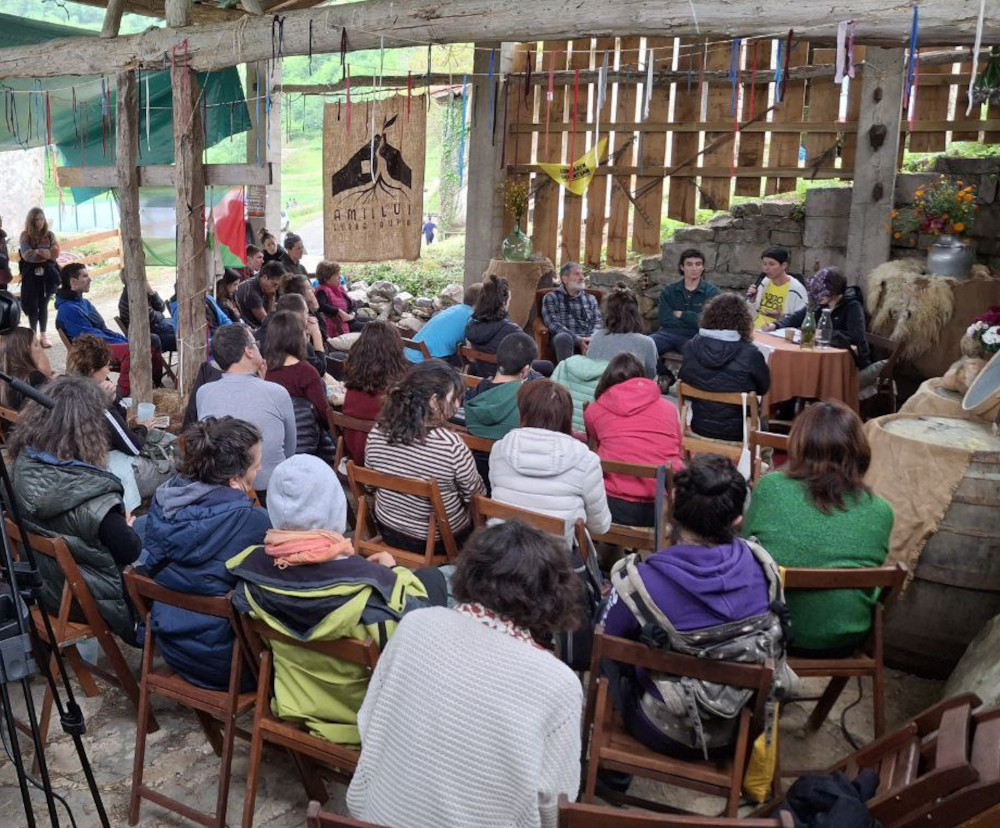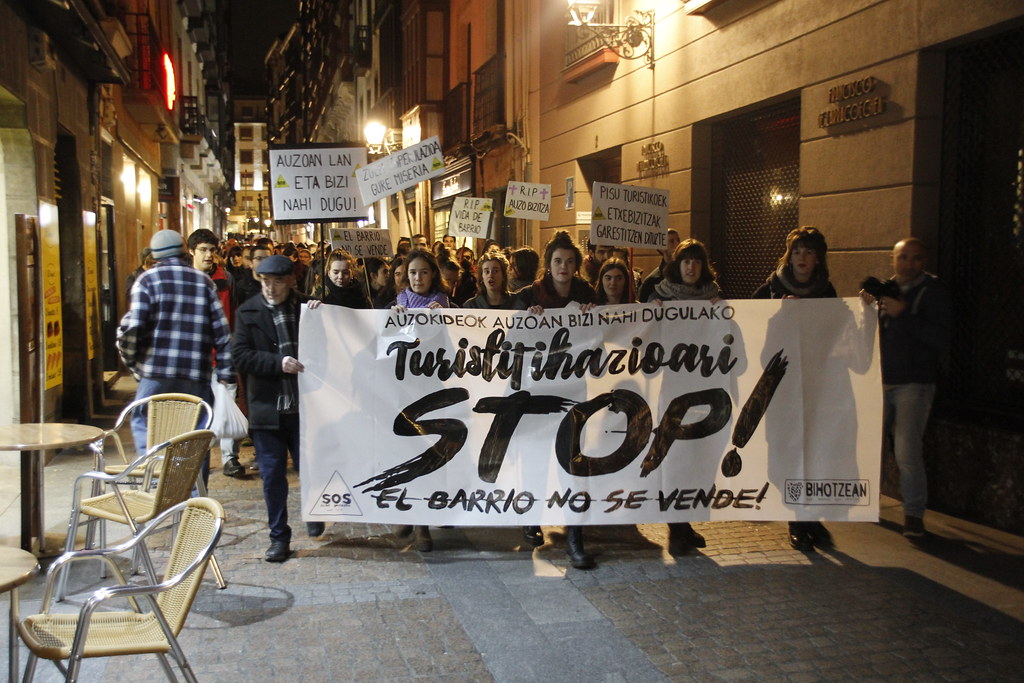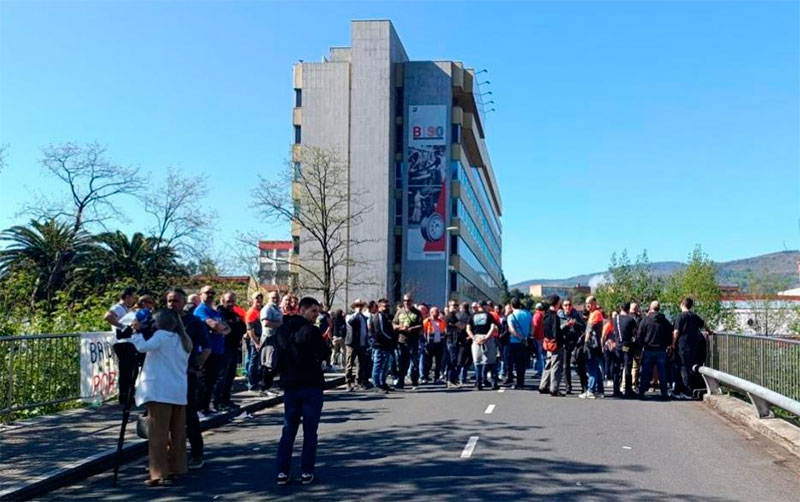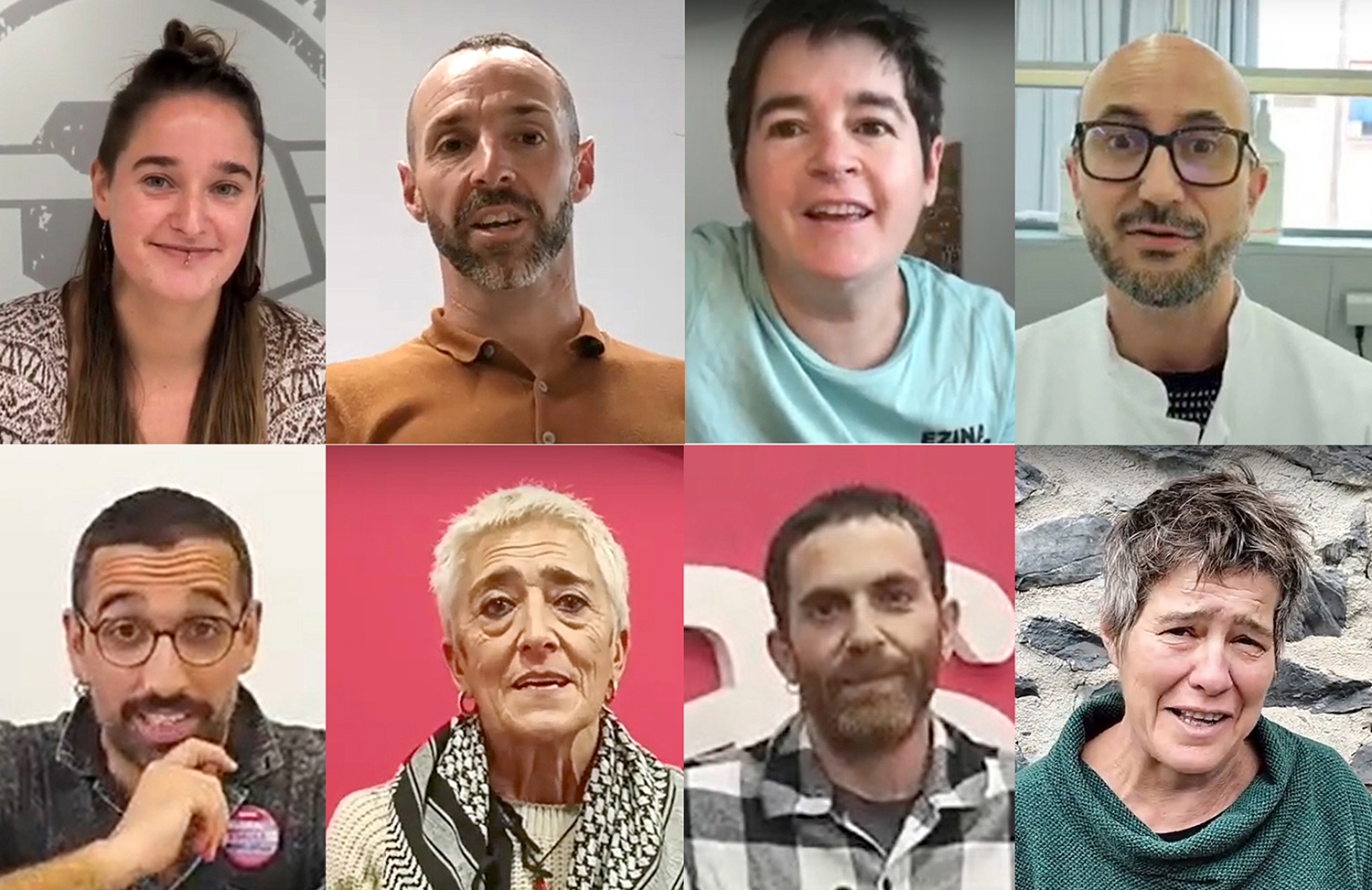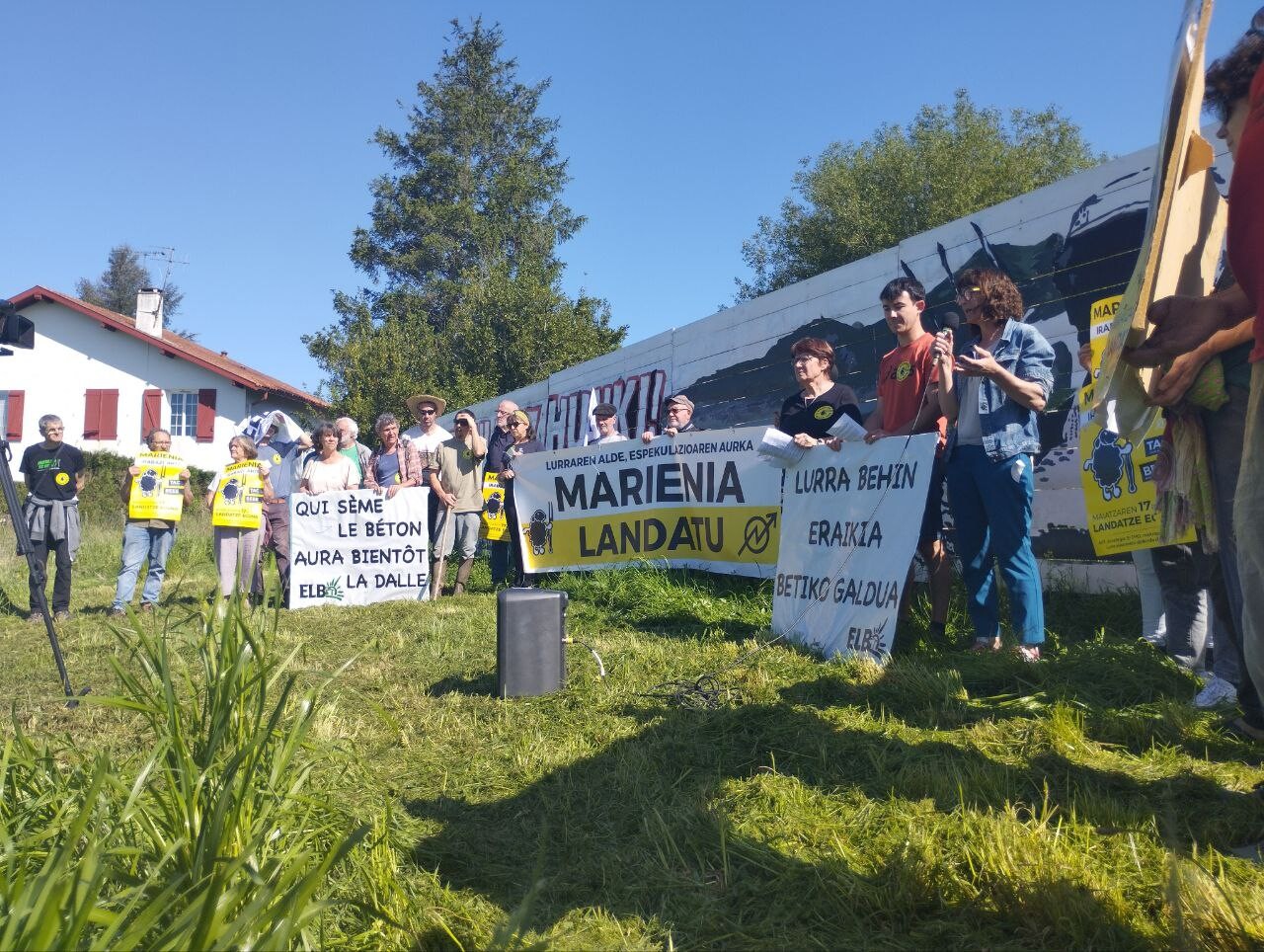“There is a need for unyielding revolutionary opposition”
- In a global context marked by the climate and social crisis and 100 years after the death of Lenin, Kevin B. We have had the opportunity to meet Anderson in Bilbao. He is a professor of sociology, political science and feminist studies at the University of California and author of the book Marx at the margins (The banks of Marx, 2015). We have asked him about the value and current status of the writings and teachings of Marx and Lenin to explain the current situation.
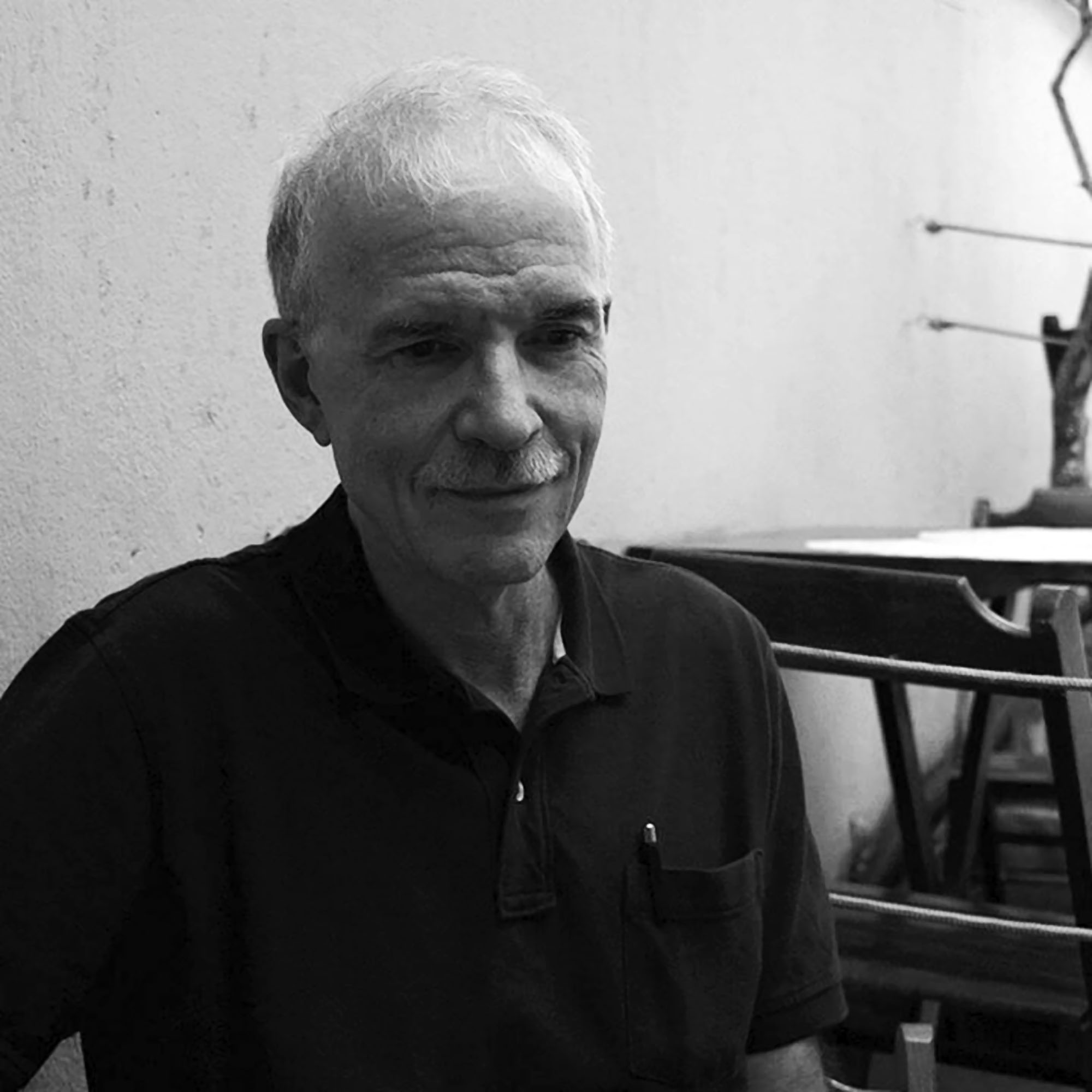
On the shores of Marx you are talking about the resistance to the dehumanization of the working class, which according to Capital is the modern revolutionary subject. But when is Marxism not humanist?
Marx describes how human relations are coded. Capitalism is not only exploitation, it is also dehumanization: if wages were very high, the elderly would not have so much added value, and yet, working for the capitalists, in the way of working capitalism, would continue to be dehumanizing.
Marx has been accused of having a linear, Eurocentric, deterministic and economist view of history. But looking at non-Western societies, he says he found other preconditions. Do they exist today?
There are still gaps or non-capitalist intervals, or at least not so capitalist. Some of these forms of life come from before capitalism, workers didn't entirely forget them when they moved to urban areas and factories. For example, in the United States and in the Anglo-Saxon world, trade unions were called “guilds”, as was the medieval feudal institution. This shows the nostalgia for the pre-capitalist social relationship, that relations were not so atomized, so impersonal. But Marx is not romantic, he also criticizes it in the Communist Manifesto.
Do you think that the Marxist theoretical corpus is enough to explain the oppression of gender and race, or the ecological issue?
Of course we have to talk about newer concepts. As for gender, Marx is much more interesting than one might think. He wrote more than people believe about the equality of women and men, the agency and the subjectivity of women. However, at least in the United States, we say that gender, sexuality and all LGTBIQ issues cannot be found in Marx or Engels.
“Western countries are in a deep crisis: we have a real opportunity to be a neo-fascist president.”
And as far as ecology is concerned, there is more to it than is believed, since Marx becomes anti-technological as thought develops. He doesn't really see any more possible breakthroughs within capitalism, and that's been mostly found in the notebooks he writes at the end of his life.
Do you think Western society today needs something equivalent to the crisis that Lenin had in 1914? Well-being, economic development… Need to rethink everything?
Yes, the Western countries, the United States, France, etc., are in a very deep crisis. And I'm not just talking about economic problems: we have a real chance of being a neo-fascist president. We have to really rethink this moment that we live in. Taking as an example the war in Gaza, [Karl] Kautsky or [Eduard] Those who are doing the same thing as Bernstein in the war of 1914 are not few: “It’s not OK, we don’t like it,” they tell us, but they’re not able to make a clear opposition. So, yes, it is a revolutionary Leninist or Marxist moment, and people like Rosa Luxembourg would add to that idea.
100 years after Lenin's death, what do you think we can learn from him at a time when narratives and imperialist conflicts are growing around war?
A lot of things, really. The first is dialectics, as it made important contributions. The second is the theory of imperialism. The national liberation movements are continuing, both in Euskal Herria and in Palestine or Rojava, and have joined the mobilization. From the left of the twenty-first century, we tend to think that nationalism is always reactionary. But we have to see nationalism dialectically and linked to the concepts of national liberation and destruction of the state.
And thirdly, in Spain there were movements like the M15. But after five or six years, with the war in Gaza, we've seen the reformist left borders like Bernie Sanders, Jeremy Corbyn, Podemos, etc. There is therefore a need for revolutionary opposition which is opposed to the system and in particular to the State and which does not give in.
.jpg)
Do you think that, as you did in World War I, today's social democracy supports the narrative of war?
Today? It's a similar moment. It is clear that this is not as big a time as in the First World War, when millions of people went to fight. But there are similarities. I'm a lot older and I took part in the movement against the Vietnam War. Even then the Liberals remained silent for a long time. They told us that they agreed with us privately, but they couldn't explain it. At that time they did not call us “anti-Semite”, but “communist” or “stalinist”. Even if you weren’t a communist or a Stalinist, the Right yelled at you “come back to Russia!”
He says that the Western Marxists owed Lenin to rediscover the “dialectical heart” of Marxism. Is there any such thing in current praxis? Or are we in marketing and postpolitics as Zizek says?
We can still learn a lot from Herbert Marcuse, Georg Lukács, Henri Lefebvre, my mentor Raya Dunayevskaya or C. L. Oh my God! Authors like James. It is true that now the Marxists are less interested in dialectics than before, but I think that is also changing, as a sign of the time in which we live. The positivism and empiricism that dominated the philosophy and social sciences in the Anglo-Saxon world are weakening, something that goes in parallel with the weakening of neoliberalism.
"Marx's thought becomes anti-technological as it develops, it sees no more possible advances within capitalism"
Are they good times for critical thinking, Marxist currents and philosophy? Or are we losing all the accumulated knowledge, immersed in times of “ignorance and alienation”?
In the United States, I'm going to a lot of leftist people's meetings. On the one hand, you can find people aged 60, 70 or 80 at those meetings, and on the other hand, people aged 15 to 40. However, you won't find yourself between the ages of 40 and 60. A whole generation, the generation of neoliberalism, is missing, unrelated to Marxism. But when young people enter the movement, not only in theory, but also in the organization or in practice, you can recover that experience.
What does it tell me about the student movement in American universities that denounces the genocide in Gaza and reframes the existing ideas on the Netanyahu regime?
It's the largest student movement in the United States since the 1960s, and it's taking a step forward to an entire generation. It is true that in the short term it can favour the right. It should be remembered that the Zionists were allowed to attack the students for three hours, while the police forces were still observing them. And that was at the “liberal” university UCLA, not some center in the south facing a team from the Ku Klux Klan. But that, instead of scaring people, has reinforced the movement. Teachers have received the support of the majority of the trade unions, who are also calling for a ceasefire.
The terrible suffering suffered by the people of Gaza by the Israeli genocide, and the determination they have made to keep their land in front of it, have provoked a gigantic reaction, not only in the United States, but throughout the world. The United States has not been at the forefront of supporting Palestine, but there are things that seem to be changing, and something new may emerge from those student camps.
Maiatzaren 22an EAEko Legebiltzarrak mila milioi euro zorpetzeko lege proiektua onartu du “zientzian, teknologian, enpresan eta industria sektorean eragiteko”. Naiz hedabideak jakitera eman duenez, Eusko Jaurlaritzak KPMG Asesores SL enpresari eskatu dio plana... [+]
Berria izateari utzi dio: beroketa globalak bi graduak gaindituko ditu, eta gainditze horrek ondorio oso garestiak ditu. Klimaren gaia tabu bilakatzen ari den testuinguru berri honetan, banketxe handiek ez dute horri buruz komunikatzen, baina arazoaz ongi jabetu dira eta... [+]
Bio etiketadun sagar edo tomate bat erosten dugunean, sagar edo tomateari osasungarri hitza lotzen diogu eta lurra zaintzen ari den nekazaria irudikatu dezakegu. Lurraren zaintzari jarritako mimoagatik, erosketaren prezio altua ulerkorra egiten zaigu. Sagarraren erosketak... [+]
















